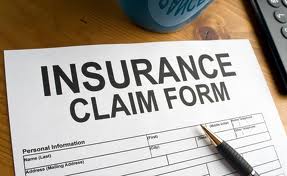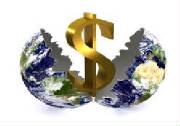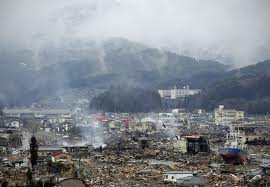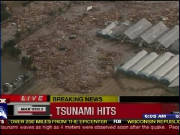6 Ways To Get The Most From Insurance Claims [Tue, March 29, 2011] Several weeks ago I was approached via email
by a journalist - Mr. Joseph Mont from TheStreet.com regarding an article about insurance claims. I was delighted, honored and privileged to share my knowledge, experiences and
thoughts on a topic that is so utterly fundamental in my daily life. [Tue, March 29, 2011] Several weeks ago I was approached via email
by a journalist - Mr. Joseph Mont from TheStreet.com regarding an article about insurance claims. I was delighted, honored and privileged to share my knowledge, experiences and
thoughts on a topic that is so utterly fundamental in my daily life.
Humbly yet unreservedly I have shared my viewpoints and expertise, realizing that this was an exceptional
opportunity to reach out to all property owners and insurance policy holders, to educate and inform about the intricate ways
of property insurance claims. You
must understand, this is just my cup of tea and with years of experience, practice, continuous education classes and various
industry incidents I can competently and proficiently address this topic in my sleep ...and so I relished in an opportunity
to contribute to what has turned into a well written article titled "6 Ways To Get the Most From Insurance Claims".
I am deeply grateful
to Joseph Mont for his interest in the material and to TheStreet.com for printing the article. It is my pleasure to share this article with you. Please don’t
hesitate to contact me if you have any questions or comments. Click here to read the article in full.
Tue, March 29, 2011 | link
Japan Disaster Likely To Be World's Costliest [Wed, March 23, 2011] As Japan struggles to rebuild while facing
a multitude of fears, obstacles and complications, economists and insurance professionals are attempting to analyze the size
of the insurance industry loss. [Wed, March 23, 2011] As Japan struggles to rebuild while facing
a multitude of fears, obstacles and complications, economists and insurance professionals are attempting to analyze the size
of the insurance industry loss.
According
to Advisen FPN Alert "Japan's government said the cost of the earthquake and tsunami that devastated the northeast
could reach $309 billion, making it the world's most expensive natural disaster on record. The extensive damage to housing, roads, utilities and businesses across seven prefectures
has resulted in direct losses of between 16 trillion yen ($198 billion) and 25 trillion yen ($309 billion), according to a
Cabinet Office estimate Wednesday". Assessing
the full scale, cost and future implications of this tragedy for Japan and the rest of the world is the first step that will
need to be taken on the journey to recovery.
In addition, there may be business interruption cover in Japan’s foreign insurance policies through suppliers or customers
extensions, if they include earthquake and prevention of access losses. That said, the local Japanese direct and reinsurance markets are very large and strong
and should pick up most of the claims. Despite
the horror of this tragedy, Japan, as the world's leading nation in risk management and disaster planning was better prepared
than most for a disaster of this nature. Certainly, it is an outstanding credit to Japan’s foresight that many buildings
withstood the prolonged earthquake shocks (a full minute) and the over one hundred strong aftershocks. As I watch the news, I am taken aback by the latest reports - over
9,800 dead, 17,500 missing in quake and tsunami aftermath. These numbers are far more serious then any economic predictions
or insurance evaluations. I wish the people of Japan much courage and strength, to rebuild and never again to know such horror.
Wed, March 23, 2011 | link
The Largest Earthquakes Ever Recorded, Japan
One Week After.  [Fri, March 18, 2011] It's been a week since
a massive earthquake and tsunami devastated a large part of eastern Japan killing thousands, displacing entire families, shutting
down businesses and causing unimaginable financial strain on the people and the country. [Fri, March 18, 2011] It's been a week since
a massive earthquake and tsunami devastated a large part of eastern Japan killing thousands, displacing entire families, shutting
down businesses and causing unimaginable financial strain on the people and the country.
A moment of silence was observed in northeast Japan on Friday at 2:46 pm (0546 GMT),
exactly one week after a huge earthquake struck, sending a devastating tsunami crashing into the coast. I truly feel for and applaud the Japanese people for their bravery
and stoicism, I can not begin to imagine a devastation of a similar magnitude, and so I urge all those in the position to
help, please do so via a charity you trust.
Being a Public Adjuster, I can't help but bring up the topic of insurance and reinsurance. Will the damages sustained by
insured private property and business owners be covered? How will the people rebuild and move on with their lives? According
to Los Angeles Times report, "Japan's magnitude 9.0 earthquake could lead to insured-property losses of nearly $35 billion, making it one
of the most expensive catastrophes in history, according to a risk-modeling analysis released Sunday by a U.S. consulting
group". But the final bill will be higher as it does not yet include damage
caused by the tsunami or potential claims against the radiation fallout. Natural disasters of
a similar scale have caused insurers to go bust in the past while corporate premiums invariably rise as they try to recoup
the vast losses incurred. The cost of hurricane Katrina to the Lloyd’s of London insurers was about £1.4bn. Insurance policies often exclude certain factors from coverage, such as exclusions on earthquake damage in property
insurance for nuclear reactors and exclusions on nuclear damage for home owners’ insurance policies. And how about the
reinsurance industry?
“A meaningful
portion of the losses will flow to the global reinsurance industry,” said Kenji Kawada, senior analyst for Moody’s
Japan K.K. He cited Munich Re, Swiss Re, Scor, Hannover Re, Berkshire Hathaway, PartnerRe and EverestRe as the largest re-insurers
and therefore the likeliest to suffer. Moody’s
said ratings for all of the major reinsurers were stable, and many reinsurance analysts said they saw one bright spot in the
disaster: prices for reinsurance have been declining for several years, and while the earthquake will hurt the results of
companies for one quarter, it might spur new demand and higher prices. Reinsurance contracts are often renewed in April, and Keefe, Bruyette & Woods issued a report on
Tuesday suggesting that losses from the earthquakes in Japan and, recently, New Zealand would lead to firmer prices on California
earthquake and Florida hurricane insurance. Would be interesting to hear your view on
the subject, so drop me an email or contact me at 954-742-8248. In the meantime, I hope that the Japanese people will overcome
the difficulties and rebuild their homeland with strength, pride and support of fellow nations.
Fri, March 18, 2011 | link
8.9 Earthquake struck Japan triggering a
Tsunami, March 11, 2011 [Fri, March 11, 2011] Getting up this morning to alarming
media reports from CNN that the most powerful earthquake has hit Japan in at least 100 years unleashed walls of water Friday
that swept across rice fields, engulfed towns, dragged houses onto highways and tossed cars and boats like toys, apparently
killing hundreds and forcing the evacuations of tens of thousands. [Fri, March 11, 2011] Getting up this morning to alarming
media reports from CNN that the most powerful earthquake has hit Japan in at least 100 years unleashed walls of water Friday
that swept across rice fields, engulfed towns, dragged houses onto highways and tossed cars and boats like toys, apparently
killing hundreds and forcing the evacuations of tens of thousands.
Prime Minister Naoto Kan said the "enormously powerful" earthquake had caused "tremendous
damage over a wide area. Cars, ships and buildings were swept away by a wall of water after the 8.9 magnitude quake, which
struck about 400km (250 miles) north-east of Tokyo. A state of emergency has been declared at a nuclear power plant but officials said there were no radiation leaks.
The death toll is unclear, but police say 200 to 300 bodies have been found in the port city of Sendai. Even for a country used to earthquakes, this one was of
horrific proportions because of the tsunami that crashed ashore, swallowing everything in its path as it surged several miles
inland before retreating. The horrific images of surging water broadcast by Japanese TV networks resembled scenes from a Hollywood
disaster movie. Heartfelt
thoughts and prayers go out to the people of Japan and those affected by the terrible earthquake and Tsunami. A quote from
John F. Kennedy comes to mind: “Our most basic common link is that we all inhabit this small planet. We all breathe
the same air. We all cherish our children's future. And we are all mortal” Japan Earthquake & Tsunami offer a grim reminder that we in the United States
are also vulnerable to similar disasters. Few households have quake coverage; flood insurance policies needed in the event
of Tsunami losses. Earthquakes are not covered under standard U.S. homeowners or business insurance policies. Earthquake insurance
is a supplemental policy to your home or business insurance. Flood damage from a tsunami also would typically be covered under a flood insurance policy
rather than a standard homeowner insurance policy. Flood policies are available from the federal government's National Flood
Insurance Program (NFIP) and some private insurance companies, and can generally be purchased from the same agent or broker
who provides your homeowners or renters insurance. According to
CNBC, "since 1900, earthquakes have occurred in 39 states and have caused damage in all 50. Just last week, a series
of minor quakes rocked the state of Arkansas. There has not been a major quake on the U.S. mainland, however, since the 6.7-magnitude
Northridge earthquake in 1994".
Fri, March 11, 2011 | link
|